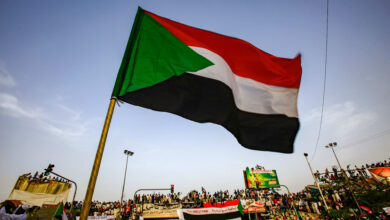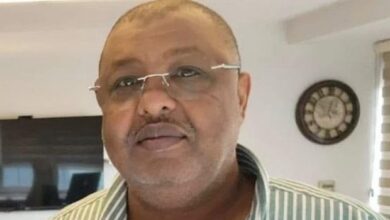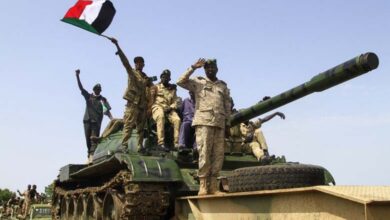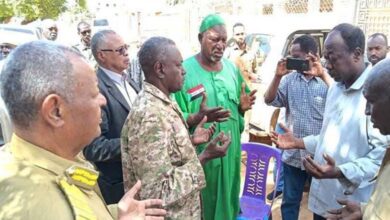US website warns of infiltration of Congress by Libyan brotherhood

Middle East Forum warns against attempts by the Libyan branch of the Muslim Brotherhood to infiltrate the US Congress. Especially with the attempts of segregation led by the group.
The website also specifically warned against Muslim Brotherhood candidate Moaz Harizi, a US congressional candidate funded by the Libyan branch of the Muslim Brotherhood.
The American website revealed that Harizi ran for the US Congress hiding behind a progressive and reformist agenda, but the real goal of his candidacy is to extend the influence of the Muslim Brotherhood, the Libyan branch of Congress.
According to federal election data, Moaz Harizi, the candidate of the American state of Connecticut, is 27 years old.
The Libyan-American campaign is funded by a dangerous group of Brotherhood men, terrorist financiers, and senior officials associated with Libya’s violent and illiberal Muslim Brotherhood movement.
According to the website, a number of senior political figures made generous contributions to Harizi’s campaign in an attempt to remove Congressman John Larson, who was a member for 11 states, and has received nearly $500,000 since launching his campaign in Connecticut.
Many of these contributions have also come from non-state donors, with only 72 out of 242 individual donations collected in 2012 from Connecticut residents.
Many of Harizi’s donors are investing in the outcome of the Libyan civil war, which began before the 2011 overthrow of Libyan president Muammar Gaddafi; in particular, some Harizi supporters supported political parties allied with Islamists and militias or factions that control western Libya, while secular and military opponents in the east of the country.
He has the full support of the Libyan-American Alliance, a pro-Brotherhood political group led by Muslim Brotherhood-linked ideologues who oppose the LNA and its commander, General Khalifa Haftar, and have exerted numerous pressure on him for alleged war crimes. They also oppose all efforts to bring peace to Libya.
According to the American website, the Libyan-American Alliance was supported by senior Brotherhood figures in Libya, and hosted a number of Libyan officials loyal to the Brotherhood.
According to the website, under the U.S. Internal Revenue Act, nonprofit organizations cannot. like the Libyan-American Alliance to intervene (including publication or distribution of data) in any political campaign on behalf of any candidate for public office.
Essam Omaish, the Muslim Brotherhood’s most prominent donor to the Harizi campaign, donated $5,000, and the executive director of the Mongi Dhaouadi Brotherhood donated $800.
In 2017, Amish was classified by the Libyan parliament’s defense and national security committee as a terrorist and an international member of the Muslim Brotherhood.
Indeed, Amish previously served as president of the American Islamic Society, an organization whose founding members once recognized it as an affiliate of the Muslim Brotherhood in the United States.
Mongi Dhaouadi is a member of the American Bureau of Ennahdha, the official political party of Tunisia’s Muslim Brotherhood and help solidify the image of the Islamic Party on Capitol Hill.
Another prominent Libyan-American activist, Imad Eddin Muntasser, served as secretary-general of the Libyan-American Public Affairs Council and contributed $6,000 to Harizi’s attempt to join Congress.
Muntasser is a convicted criminal accused of using an Islamic charity to fund terrorism, according to the New York Post. He wrote to Obama in 2016 to express his support for the Derna Revolutionary Council, an al-Qaeda-linked militia he described as an alliance of moderate Islamists and local municipal leaders.
In addition to Libyan-American activists, Harizi’s donors from the Libyan political sphere extend to the highest levels of public office.
Mustafa Abu Shaqar, who donated $950 to Harizi’s campaign, was briefly elected prime minister of Libya until he received a no-confidence vote for his failure to form a representative government, which “is believed to include several members of the Muslim Brotherhood”, according to Reuters.
Ali Ramadan Abu Zaqouq, another donor, served as foreign minister in the National Salvation Government and is listed alongside Amish on a list of 75 individuals identified as terrorists by Libya’s secular House of Representatives party.
Naeem Gheriany was an adviser to the post-revolutionary Libyan government and the first minister of higher education and scientific research, a member of the Libyan American Council, and one of the pro-Islamist lobbies Amish helped establish after Gaddafi’s ouster. So far, Harizi has received $5,800 from Gharyani.
Along with supporting Islamist bureaucrats and politicians, some of Harizi’s donors maintain ties with Hamas, the U.S.-designated terrorist group that controls the Gaza Strip.
Several donors and supporters of Harizi’s campaign also hold leadership positions on the Council on American-Islamic Relations.
Residents of Connecticut’s first neighborhood may be surprised to learn Harizi’s Islamist sponsors and how they can influence his domestic and foreign policy agenda, but in interviews and campaign ads, the junior politician claimed a progressive agenda that in many ways contradicted the religious values espoused by his donors.












